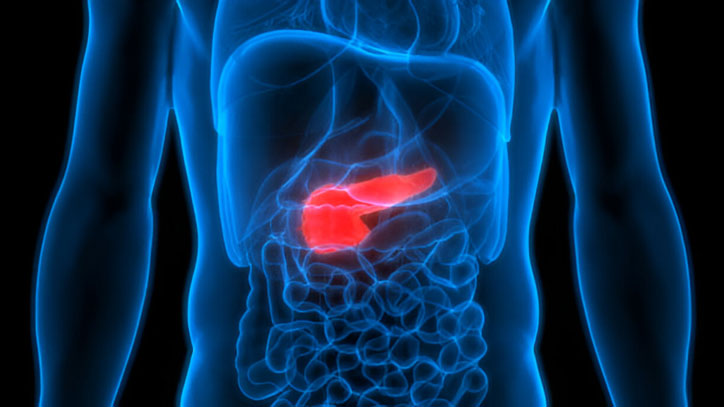Acute pancreatitis can cause a sudden onset of abdominal pain that does not go away over time. It can be caused by several factors, but the over usage of alcohol is a large contributor. Stem cell therapy is now being explored as a treatment for patients suffering from acute pancreatitis pain. This therapy may be able to
What Is Acute Pancreatitis?
Acute pancreatitis is an inflammation of the pancreas. It is painful, develops quickly, and it can, in some cases, be fatal. Some mild cases resolve without treatment, but severe, acute pancreatitis can trigger potentially life-threatening complications. The mortality rate ranges from less than 5% to over 30%, depending on how severe the condition is and if it has reached other organs beyond the pancreas. The pancreas is a long, flat gland located behind the stomach in the upper abdomen. It produces digestive enzymes and hormones, which regulate how the body processes glucose, for instance, insulin. The most common cause of pancreatitis is gallstones, but a rise in alcohol use is linked to an increase in occurrences. Alcohol now accounts for around 30% of cases. Acute pancreatitis starts suddenly, but chronic pancreatitis is recurring or persistent. This article will focus on acute pancreatitis.
Typically, the patient will experience a sudden onset of pain in the center of the upper abdomen, below the breastbone. Rarely, the pain is first felt in the lower abdomen. It will gradually become more intense until it is a constant ache. The ache may intensify further and become severe. It also spreads into the back in around half of the cases. Eating may exacerbate the pain. Pancreatitis that is caused by gallstones will develop very fast. When it is caused by alcohol, symptoms develop more slowly over several days. Leaning forward or assuming a fetal position may help lessen the pain slightly. Anybody who experiences constant pain should seek medical attention.

In severe acute pancreatitis, there is usually some tissue death or necrosis. This increases the risk of sepsis, a severe bacterial infection that can affect the whole body. Sepsis can lead to multi-organ damage or failure. Severe acute pancreatitis can also cause hypovolemic shock. Severe blood and fluid loss can leave the heart unable to pump enough blood to the body. Parts of the body can become rapidly oxygen-deprived. This is a life-threatening situation. If gallstones caused acute pancreatitis, the patient might undergo surgery or an endoscopic retrograde cholangiopancreatography (ERCP) after their condition improves. After the gallstones are removed, the patient may be told to follow a special diet to lower blood cholesterol because excess cholesterol encourages the growth of gallstones.
How Can Stem Cell Therapy Alleviate Acute Pancreatitis Pain?
After the pancreas has been damaged by acute pancreatitis, it is difficult to heal. Stem cells can potentially regenerate healthy pancreas tissue that was damaged. They can also reduce inflammation in the pancreas, and control the body’s collagen production. Collagen is one of the main factors in fibrosis forming after an injury. Decreasing the inflammation and fibrosis allows blood and oxygen to flow into the tissue and begin to heal.

Dr. David Greene
MD, PhD, MBA
Dr. David Greene, MD, PhD, MBA, is a pioneering leader in regenerative medicine and healthcare marketing. As a residency and fellowship-trained orthopedic surgeon, Dr. Greene transitioned from clinical practice to become the founder and CEO of R3 Stem Cell and US Lead Network, where he has revolutionized patient care and medical practice growth through innovative therapies and digital marketing strategies. He has authored two influential books on healthcare internet marketing, ranks among the top expert authors globally, and has been featured on the cover of Corporate Vision magazine for his impact on global regenerative therapies. Beyond his professional achievements, Dr. Greene is passionate about education, compassion, and continuous innovation.

No Comments